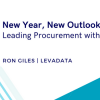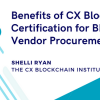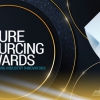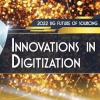Social Impact Sourcing: A New Version of Commerce
In the midst of a pandemic, business models are wide open for transformation.
From my perspective, COIVD-19 is just a precursor to the larger threat looming from unmitigated climate change. In conjunction with racial inequality, old-hat “business as usual” models are potentially heading off a cliff.
The UN Sustainable Development Goals (SDGs) are what many consider the gold standard for social impact goals. They provide a shared blueprint for peace and prosperity for people and planet, along with an urgent call to action. How do we help achieve these goals?
Many businesses are shifting or talking about a shift toward sustainability in some fashion or another. In 2019, the CEO Roundtable, which is a consortium of the nation’s top CEOs, declared that shareholder value is no longer everything. Around the same time, the Sustainable Procurement Pledge (SPP) was launched from the Chief Procurement Officers of Bayer and Heinkel, both German multinational organizations. The SPP now has over 4,000 global members voluntarily pledging sustainability. Is that moving the needle on driving sustainability?
Countering Capitalism
Considering the state of the planet and humanity, along with recent social uprisings, I see the opportunity for systematic change to counter the effects of reckless capitalism.
What if we could brand social impact at the forefront of procurement by (i) attracting buyers who want solutions that are sustainable, and (ii) shifting the cost of sales from profit-only to profit and purpose. Imagine if services bought and sold had social impact in terms of embedded philanthropy built into each transaction?
If consumers opted in for such offerings, adaptable suppliers would follow their lead and offer services in more planet-friendly methods, from delivery to content. Millions, if not billions of dollars, could be diverted toward positive change, but there are no easy buttons for social impact…or are there?
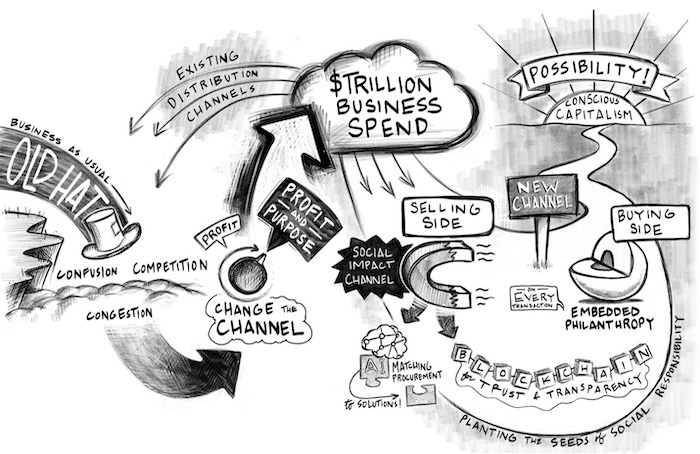
(Original artwork by Andrew Fetterman.)
On the retail or consumer level, there are a few platforms that offer seamless integration of social impact into purchasing. Amazon Smile has donated millions of dollars through their embedded philanthropy extension. Although not a focus of Amazon’s by any means, the impact generated has been quite substantial by any measurement due to the sheer number of transactions and ease of use. It is literally as easy as checking a box and opting in.
But why aren’t most folk opting in? Imagine if you could shop at the socially responsible store as easy as the profit-only store. It might look something like this: less packaging, less misleading advertising, less fillers, and much less BS to be frank. We saw the start of it on the consumer level at places like Whole Foods and other natural food stores, but generally at much higher costs to consumers, which makes it accessible only to the wealthier class.
From my perspective in this light, I see the possibility of shifting the cost of distribution. Currently, I am building the only social impact technology distribution platform where procurement equals giving, connecting the dots of motivated buyers looking for social responsibility to sellers looking for profit and purpose, hoping to help lead the shift of commerce toward a more sustainable path.
Imagine a systematic shift where all concerned parties gravitate toward team humanity and team earth, always opting in for social impact whenever possible, driving systemic behavioral change of suppliers as well as consumers.
In this new version of commerce, all things are equal on the look and feel of the services being consumed, minus the delivery methods shifting the cost of sales distribution opportunities from kickback to impact and branding as such. Models can add social impact in the form of embedded philanthropy into all transactions and have the impact generated mapped from transaction to vendor, buyer and seller within the distribution channel ecosystem to the impacted/supported NGO and beyond to the correlating SDG.
Offsetting the cost of social impact by branding and attracting opportunities along with the procurement community opting-in are what will help make this a reality. I was recently interviewed by the NY Chapter of Conscious Capitalism and within the interview I mentioned that we need to kick lip-service in the mouth. Sadly, I see too many folks talking and preaching social change, but not very open to the innovation needed to create.
How to Move Forward
I envision a version of conscious capitalism that works for all, on all fronts, and which can address any service or product sold indirectly, which is more than two-thirds of world trade. Along with the ability to support any worthy cause. Shifting from kickback to impact in distribution is what I am talking about on a general level. I am ready, willing, and sustain-able to deliver such a model with help. Help in the shape of openness to innovative methods offering positive change when fitting, and willingness to change for the better is all I can ask.
In conclusion, now more than ever, cliché or not, we all need to do what we can to help make the world a better place as our time on earth – without systematic change toward sustainability – is running out fast. If we do not make systematic changes that help improve society or fight climate change, get out of the way of those who are. We cannot turn a blind eye and expect our troubles will fix themselves. If this content interests you, I am happy to speak directly to anyone on the pros and cons of such. From my perspective, I have nothing to lose and everything to gain.
The business sector has no option but to be a force for change. Complicity and complacency are not wanted and furthermore no risk equals no innovation.




